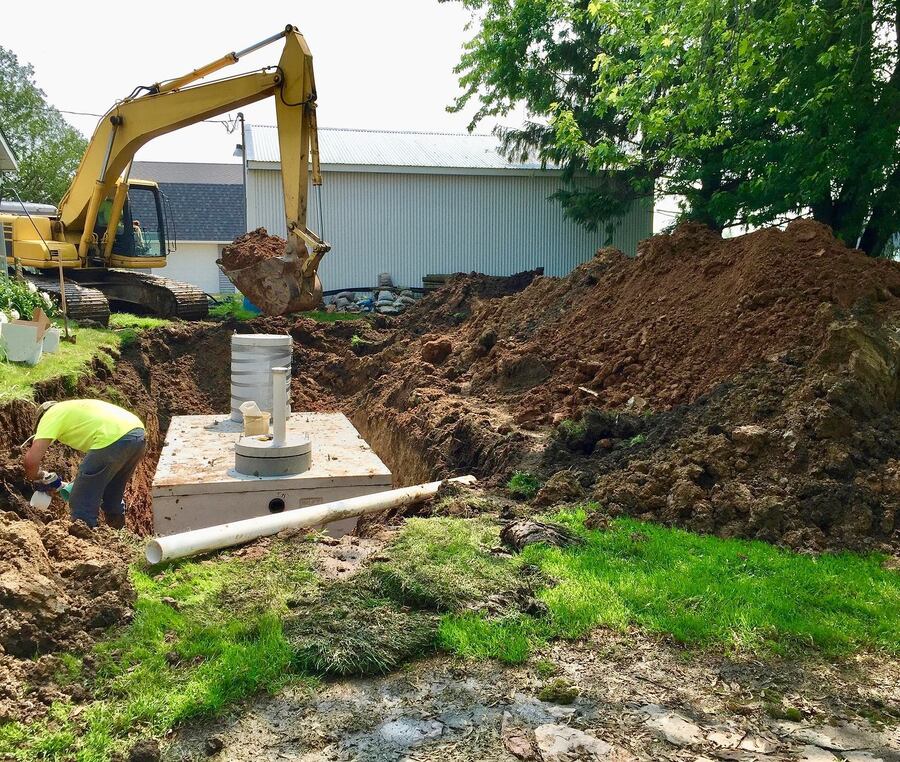Call This Wednesday to Get $25 OFF
Clean Solutions, Dirty Jobs – Done Right. Reliable. Responsive. Remarkable.
Call This Wednesday to Get $25 OFF
Clean Solutions, Dirty Jobs – Done Right. Reliable. Responsive. Remarkable.
Homeowners in the suburbs or city outskirts often lack the services of a municipal sewer system. Septic systems provide an onsite wastewater management solution, ensuring safety and improved efficiency. Whether you have a septic tank installation project for a new home or upgrading an old unit, Septic Connection can ensure efficiency, compliance, and longevity. Here are three essential factors to consider before conducting a septic tank installation.

Before installing a new septic system, consult a trusted septic company for a comprehensive site evaluation. We leverage innovative equipment and expertise to assess the soil type, water table level, landscape features, and property size before determining the best location and design of the septic system.
Different soil types absorb and treat wastewater differently. Sandy soil drains water quickly, while clay soil holds water, affecting drainage. Our experts conduct a soil percolation test, also known as a “perc test,” to assess the soil’s ability to absorb water and design a proper septic system.
The water table’s proximity to the surface affects the system’s performance and design. A high water table can cause poor drainage and contamination of groundwater. Hiring a septic company for a thorough site evaluation to determine the water table’s depth is advisable. This ensures a successful installation and prevents frequent septic tank repair calls in the future.
The septic system is an onsite waste treatment facility, and it is incredibly reliable. However, the system is only as effective…
Imagine flushing your toilet and then suddenly realizing that your backyard has turned into a swampy mess. This unpleasant experience is…
Soil testing is a critical step in various construction and environmental projects. It provides essential information about the ground conditions, which…
Grease traps are remarkable tools that help keep your establishment clean and free from bad odors. Septic Connection has a…
If you have just moved into a new home or property that relies on a septic system for waste and wastewater…
When evaluating potential septic system locations, your property’s landscape, vegetation, and existing structures are crucial factors. Avoid areas prone to flooding, steep slopes, and dense tree roots, as these can hinder proper installation. Obstacles can also make maintenance practices like septic tank pumping and repair challenging.
Most areas mandate that property owners comply with local regulations and permits during home improvement projects. Whether septic tank repair, installation, or cleaning, compliance ensures public health safety and protects the environment.
The best way to ensure compliance with local regulations is to get the needed permits and approvals from local health departments or regulatory agencies. This can be challenging for DIYers, prompting the expertise of a professional. Failure to comply can cause fines, delays, or costly system modifications.
Septic-related projects, especially installation projects, pose significant environmental effects. We assess potential risks to groundwater, surface water, and nearby ecosystems and recommend effective measures to prevent environmental effects, such as installing protective barriers and erosion control measures.
Proper maintenance practices, such as septic tank cleaning and repair, are essential for maximizing the lifespan and efficiency of septic tanks. Neglecting routine care can cause system failure, costly maintenance, and environmental contamination.
After a successful installation, schedule regular inspections by qualified professionals to assess your system’s condition and functionality. This allows us to detect, diagnose, and address issues before things get out of hand.
Another critical factor is determining a suitable septic tank pumping frequency. Certified technicians consider household size, usage, and tank capacity to tailor a pumping schedule. Regular septic pumping removes solid waste buildup from the tank, preventing blockages and system failures.
Installing a new septic system requires careful consideration of these three vital factors to ensure optimum function and durability. Contact us at Septic Connection and schedule a consultation with our experts to enjoy quality services, including septic tank cleaning and maintenance.
When septic problems start, many homeowners look for quick and inexpensive solutions. Online videos, store-bought additives, and advice from well-meaning neighbors can make do-it-yourself septic fixes seem appealing. Unfortunately, septic…
Read moreA septic system is one of the most important—and most overlooked—components of a home. It manages wastewater quietly in the background, so many homeowners assume everything is fine until a…
Read more